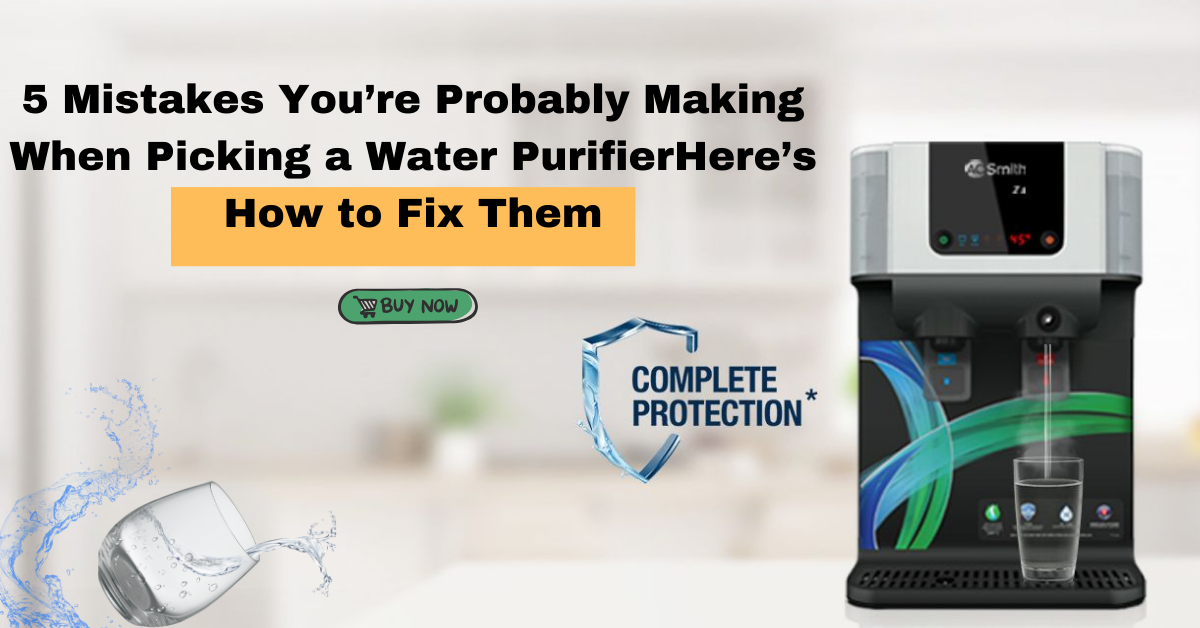Choosing the right water purifier is crucial for ensuring the health and safety of you and your family. With a wide array of options available, it can be overwhelming to find the best fit for your needs. However, many consumers unknowingly make mistakes that can compromise the effectiveness of the purifier and lead to unsatisfactory results. From overlooking essential features to prioritizing price over quality, these missteps can result in poor investment choices. Here are five common mistakes you might be making when selecting a water purifier, along with effective solutions to rectify them.
1. Ignoring Water Quality Tests
Mistake: Many individuals make the assumption that all water sources are similar in quality. Consequently, they skip conducting water quality tests before purchasing a purifier. This oversight can lead to selecting a device that fails to address specific contaminants present in their water supply, ultimately compromising the effectiveness of the purification process.
Fix:
- Conduct a water quality test to identify impurities such as heavy metals, chlorine, or bacteria in your water.
- Choose a purifier that targets the specific contaminants found in your water supply based on the test results.
2. Focusing Solely on Price
Mistake: In an effort to save money, many consumers fixate on the initial purchase price of a water purifier without considering its long-term value. This can lead to purchasing a cheaper model that may not offer effective purification, resulting in higher maintenance costs and frequent filter replacements down the line.
Fix:
- Evaluate the overall value of the purifier, considering factors like purification technology, maintenance costs, and filter lifespan.
- Invest a little more in a quality purifier, as it can save you money in the long run through fewer replacements and better performance.
3. Neglecting Maintenance Requirements
Mistake: Some consumers underestimate the importance of maintenance for their water purifiers, assuming they will operate efficiently without regular care. This negligence can lead to decreased efficiency and compromised water quality, as filters may become clogged or ineffective over time.
Fix:
- Research the maintenance requirements of any purifier you consider to understand the upkeep needed.
- Look for models with user-friendly maintenance features, such as filter change indicators, and be prepared to perform regular upkeep to ensure optimal performance.
4. Overlooking Certification and Safety Standards
Mistake: Not all water purifiers are created equal, and many consumers fail to check if a purifier is certified by recognized safety and quality organizations. This oversight can lead to purchasing products that may not meet safety standards, putting your health at risk.
Fix:
- Check for certifications from reputable organizations such as the Water Quality Association (WQA) or NSF International.
- Ensure that the purifier has been tested and meets specific performance and safety criteria to guarantee its effectiveness.
5. Choosing Based on Features Alone
Mistake: While modern water purifiers often come with various advanced features—such as smart connectivity, touch controls, or aesthetic designs—many buyers are tempted to prioritize these elements over the fundamental purification capabilities of the unit.
Fix:
- Focus on core filtration technology and effectiveness as your primary criteria for selection.
- Choose a model that balances essential purification capabilities with additional features that enhance convenience and usability without compromising performance.
Conclusion: Make an Informed Decision
By recognizing and avoiding these common mistakes, you can make a more informed decision when selecting a water purifier that meets your family's needs. Conducting water quality tests, evaluating overall value instead of focusing solely on price, understanding maintenance requirements, verifying certifications, and prioritizing core purification capabilities will ensure you invest in a reliable water purifier. This will ultimately provide you with clean, safe drinking water for years to come.


